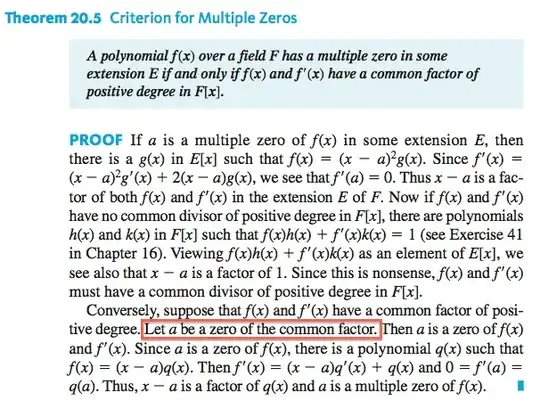While it is correct that the common factor $g$ of $f$ and $f'$ may not have a zero in the field $F$, the theorem is about multiple zeroes "in some extension $E$". As soon as the common factor $g$ has positive degree, it has a zero $a$ at least in the algebraic closure $\overline F$ of $F$. This is in general an infinite extension, but $a$ is also a root of $g$ (and hence a common root of $f$ and $f'$ and ultimately a multiple root of $f$) in the finite extension $E=F(a)$ of $F$. Alternatively, if $h$ is an irreducible factor of $g$, let $E=F[x]/(h)$; there $h$ (and hence $g$) has a root. So the important thing here is that the claim to be shown allows us to switch to an extension of $F$.
